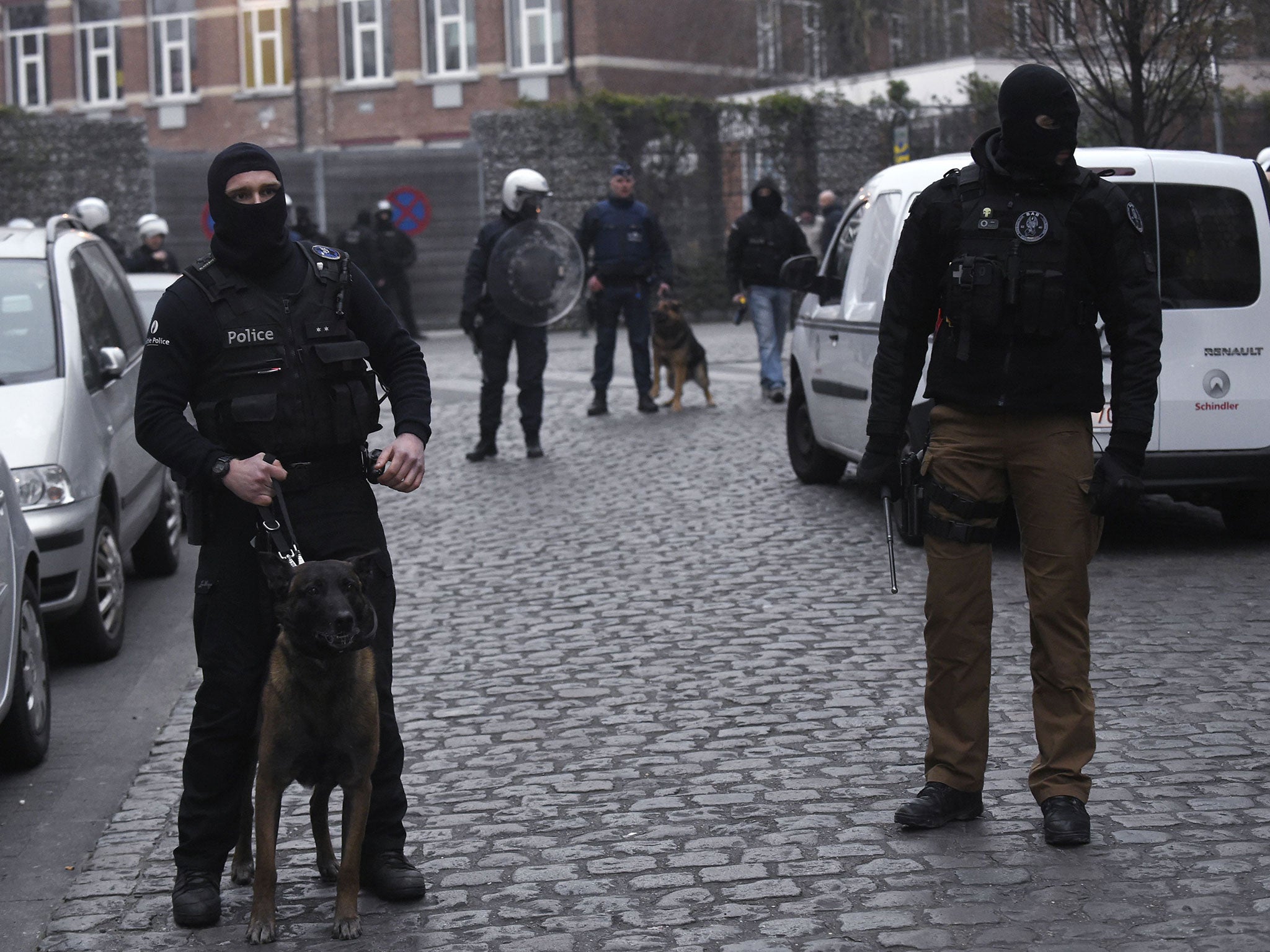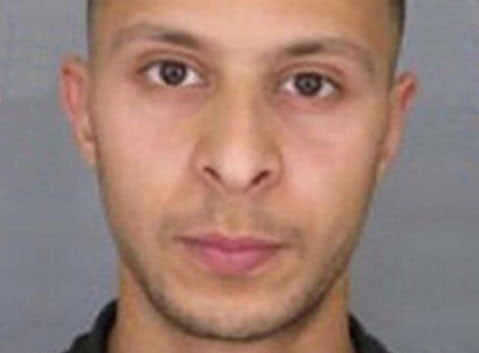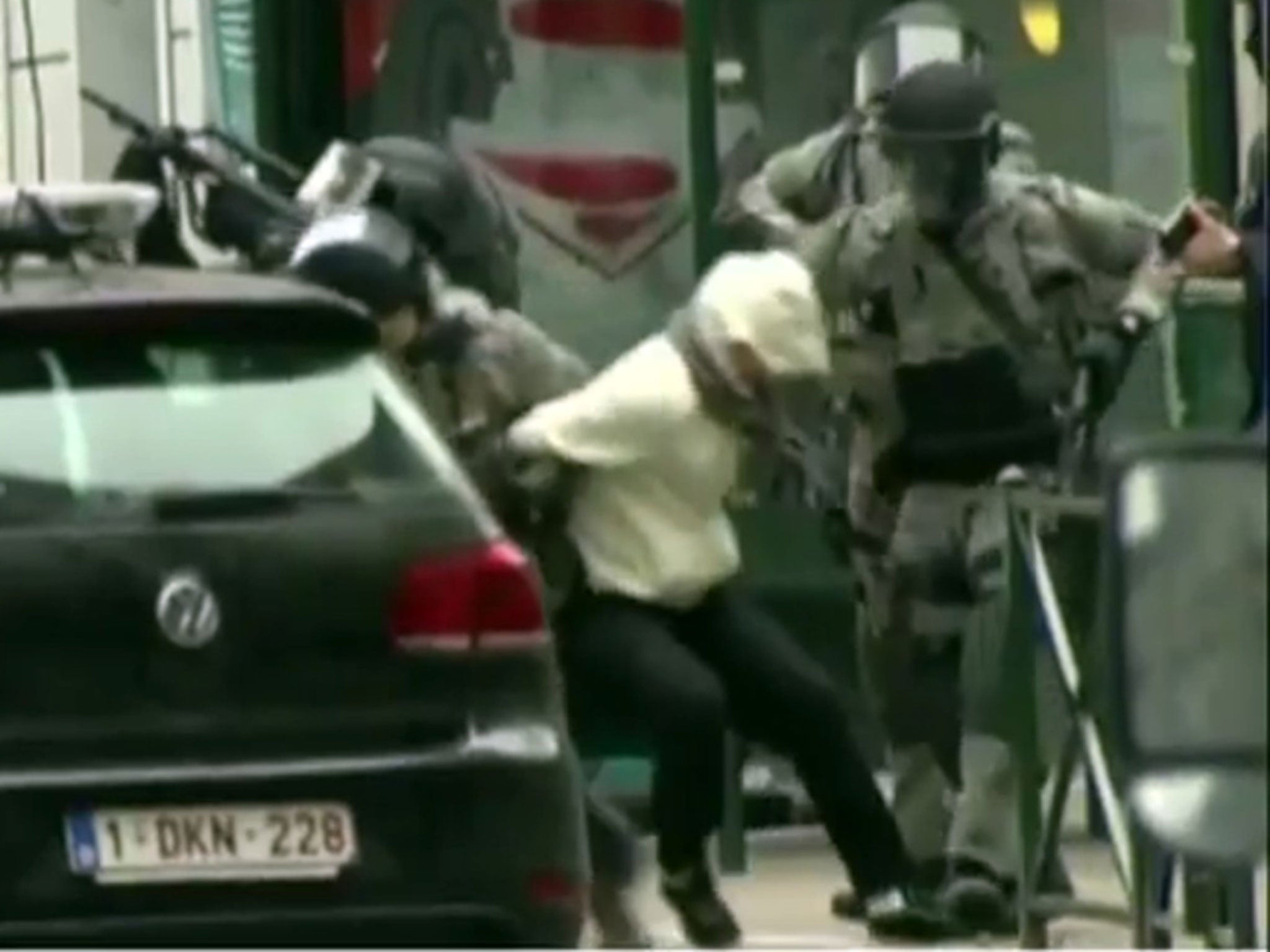Salah Abdeslam: World's most-wanted fugitive and last surviving Paris attacker captured in Brussels by police
Abdeslam has been caught alive after being shot in the leg by police

Your support helps us to tell the story
From reproductive rights to climate change to Big Tech, The Independent is on the ground when the story is developing. Whether it's investigating the financials of Elon Musk's pro-Trump PAC or producing our latest documentary, 'The A Word', which shines a light on the American women fighting for reproductive rights, we know how important it is to parse out the facts from the messaging.
At such a critical moment in US history, we need reporters on the ground. Your donation allows us to keep sending journalists to speak to both sides of the story.
The Independent is trusted by Americans across the entire political spectrum. And unlike many other quality news outlets, we choose not to lock Americans out of our reporting and analysis with paywalls. We believe quality journalism should be available to everyone, paid for by those who can afford it.
Your support makes all the difference.Salah Abdeslam, the suspected Isis jihadi accused of helping kill 130 people in the Paris attacks, has been caught alive after being shot in the leg during an anti-terror raid in Brussels.
"We got him," the Belgian justice minister declared after confirming that Abdeslam, who has been on the run since the night of the attacks in November, had been captured during the operation in Molenbeek.
Another man was also injured in the raid on the flat in the Rue des Quatre Vents in the Molenbeek district – only a few hundred metres from the café that was once run by Abdeslam and his older brother Brahim.
Five people in total, including Abdeslam, have been arrested in connection with the raid.
Police sources said that Abdeslam had been besieged there for more than an hour before a police marksman “immobilised him” by shooting him in the leg, after which he was captured.
The second man arrested was named as Soufyane Kayal, said to be an associate of a suspect killed on Tuesday. A third man is reportedly still in the flat.
TV footage showed armed officers descending into the area and gunshots and explosions were reportedly heard.

Fire engines and ambulances were seen driving into the gated complex, which remains under armed police guard, and a helicopter hovered overhead.
Local media said police, who were joined at the scene by the army, appeared to use grenades while eyewitness reports suggested white smoke could be seen coming from a property.
Mr Michel left a European Union summit on the refugee crisis early as the raid unfolded.
He tweeted that US President Barack Obama has called him to congratulate him on the arrest and said he and France "stand united in the fight against terrorism".
French President Francois Hollande has said more people were involved in the November plot thatn authorities had initially assumed.
He has called for Abdeslam's extradition to France to face trial.
Earlier today, Belgian federal prosecutors confirmed they found Abdeslam's fingerprints in a Brussels raid on Tuesday.
Abdeslam may have been one of the men who fled the raid on Tuesday, RBTF reported, but officials would not confirm whether he was present.

Abdeslam went on the run after appearing to have removed his suicide vest and fled the Paris attacks on 13 November which left 130 dead.
He is one of two Paris attacks suspects to escape alive, the other being Mohamed Abrini, who is still wanted by police.
The Belgian-born son of Morrocan immigrants has remained at large since fleeing the capital on the night of the attacks.
The 26-year-old participated in the attack on restaurants near the Bataclan theatre with his older brother Brahim before they reportedly went to the Stade de France to blow themselves up.
Brahim was the only one to follow through on their plan. Abdeslam bought a SIM card from a shop in the 18th arondissment in northern Paris an hour after the attacks and called two friends in Brussels to come pick him up.
After walking for near nine hours he met them in Châtillon a suburb on the other side of the city at around 7am.
In his statement to Belgian authorities after the attacker, one of Abdeslam's friends said they had last seen him in the Schaerbeek area of northern Brussels the day after the attacks.
Authorities do not believe the flight was planned and he has reportedly been hiding from Isis as well as intelligence agencies as he did not fulfill his "martyrdom".
His name has been excised from all propaganda issued by the so-called Islamic State in the wake of the attacks. This has led to speculation that he might be as much on the run from Isis as from Europe’s police forces. Rumours have swirled for weeks about his possible whereabouts, with reports that he fled to Morocco or – implausibly – to the Isis-controlled parts of Syria and Iraq.
It is currently unknown how Abdeslam became radicialised.
One of Abdeslam’s friends from Molenbeek told The Independent he could "never, ever, ever have imagined it could be the same person [he] knew".
Abdel Ben Alal said: "We chatted and talked about school and sports. I didn’t see any sign of hatred in him whatsoever".

Abdeslam also reportedly liked to frequent gay bars and was reportedly seen in one in central Brussels just weeks before the attacks.
It is believed he may have become an extremist after serving time in prison for robbery with his childhood friend Abdelhamid Abaaoud - the ringleader of the attackers who was killed in the Saint Denis raid in the days after - five years ago.
Earlier, the Belgian federal prosecutor’s office named the Algerian killed in Tuesday’s raids as Mohamed Belkaid, alias Samir Bouzid, a known associate of Abdeslam and Abdelhamid Abbaoud, the leader of the Paris attacks. A black Isis flag and a book on Salafism, the fundamentalist interpretation of Islam, were found in the flat.

Bouzid had been sought since December when police published closed-circuit images of him sending money to Paris two days after the 13 November massacres. The money was sent to a cousin of Abbaoud, who died with him when police stormed their hideout on 18 November.
Belgian police say that they did not expect to find anyone when they knocked on the door of the house in Rue du Dries on Tuesday. Although the six police officers – four Belgian and two French – were armed and wearing bullet-proof jackets, they also failed to anticipate that the suspects might flee through the first floor window, into the back alleys and gardens, and along roofs.
Join our commenting forum
Join thought-provoking conversations, follow other Independent readers and see their replies
Comments